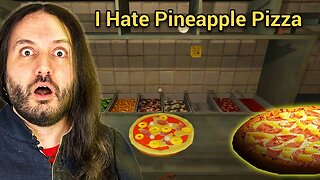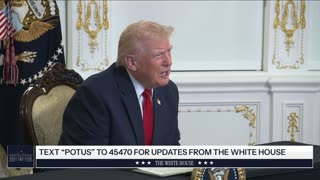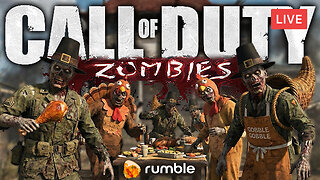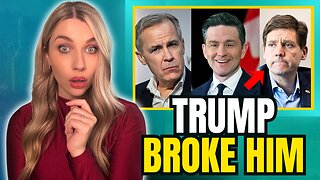Premium Only Content

WINSTON CHURCHILL
*Winston Churchill – Biography
---
Introduction
*Sir Winston Leonard Spencer Churchill* (1874 – 1965) was a British statesman, soldier, writer, and orator who served as *Prime Minister of the United Kingdom* twice (1940‑1945, 1951‑1955). He is best remembered for his steadfast leadership during *World II*, his stirring speeches, and his recognition as a Nobel Prize laureate for literature.
---
Early Life & Family
- *Born 30 November 1874* at *Blenheim Palace, Oxfordshire*, to *Lord Randolph Churchill*, a politician, and *Jennie Jerome*, an American heiress.
- *Victorian aristocracy*: educated at *Harrow School* and *Royal Military College, Sandhurst*.
- Commissioned as a *cavalry officer (4th Queen’s Own Hussars)* in 1895. Saw action in *India, Sudan (Omdurman), and South Africa (Boer War)*—where he became a war correspondent and gained fame for escaping a POW camp.
Political Career Beginnings
- *1900:* Elected *Member of Parliament (Conservative)* for Oldham.
- *1904:* Switched to *Liberal Party* over free trade. Held posts: *Under‑Secretary for the Colonies (1905‑1908), President of the Board of Trade (1908‑1910), Home Secretary (1910‑1911), First Lord of the Admiralty (1911‑1915).*
- *Gallipoli Campaign (1915)*—a disaster; resigned and served on the Western Front (1916‑1918).
Inter‑War Period
- *1922:* Lost his seat; returned to Conservatives in 1924. Served as *Chancellor of the Exchequer (1924‑1929)*, returning Britain to the *Gold Standard* (later criticized).
- *1930s (Wilderness Years):* Criticized *appeasement* of Nazi Germany; wrote extensively, including *“The Second World War”* (later).
World War II – Prime Minister (1940‑1945)
- *May 1940:* Became *Prime Minister* after *Neville Chamberlain* resigned. Formed a *coalition government*.
- *Key Achievements:*
- *“We shall fight on the beaches”* speech (June 1940).
- *Lend‑Lease* partnership with U.S., *Tehran, Yalta, Casablanca* conferences.
- *Battle of Britain* (1940) – inspired nation with radio broadcasts (“Their finest hour”).
- *1945:* Led Conservatives to defeat in the *July 1945 election*, losing to *Clement Attlee*.
Post‑War Leadership (1951‑1955)
- *Second term as Prime Minister (1951‑1955)* – focused on *Cold War containment*, *Korean War*, and *UK’s recovery*.
- *1953:* Awarded *Nobel Prize in Literature* for his six‑volume *“The Second World War”* and *“A History of the English‑Speaking Peoples.”*
- *Retired 1955*, remained an MP until 1964.
Personal Life & Personality
- *Marriage:* *Clementine Hozier (1908)*, five children.
- *Writer & Painter:* Over 40 books (history, biography, fiction), painted over 500 works.
- *Health:* Suffered *stroke (1953)* but continued duties.
- *Humor:* Known for witty retorts, e.g., “I have taken more out of alcohol than it has taken out of me.”
Death & Legacy
- *Died 24 January 1965*, age 90. *State funeral* attended by world leaders.
- *Statue in Parliament Square*, *Churchill Square (London)*, *Mount Churchill (Alaska)* named after him.
- Remembered as a *war‑time hero*, *master of rhetoric*, and *controversial figure* (criticized for *colonial views* and **Gallipoli).
His legacy endures through his speeches, writings, and the *Churchill War Rooms* museum.
Sources: Oxford Dictionary of National Biography, Nobel Prize archives, Churchill Centre.
-
 LIVE
LIVE
The Quartering
10 hours agoThanksgiving Day Yule Log!
2,192 watching -
 15:32
15:32
IsaacButterfield
17 hours ago $0.31 earnedAussie Reacts To UNHINGED Woke TikToks!
8751 -
 LIVE
LIVE
PandaSub2000
10 hours agoLIVE 6:30pm ET | NINTENDO PLATFORMERS Thanksgiving Special
262 watching -
 1:03:06
1:03:06
MetatronGaming
23 hours agoThis is the scariest game ever (for an Italian)
8.59K1 -
 1:09:35
1:09:35
The White House
4 hours agoPresident Trump Participates in a Call with Service Members
24K45 -
 LIVE
LIVE
a12cat34dog
3 hours agoHAPPY THANKSGIVING - I APPRECIATE YOU ALL SO MUCH {18+}
116 watching -
 24:55
24:55
Jasmin Laine
1 day agoCarney BRAGS About ‘Investment’—Poilievre Drops a FACT That Stops the Room
20.2K20 -
 2:14:15
2:14:15
SIM_N_SHIFT GAMING
2 hours ago $0.72 earnedGRAND THEFT AUTO WITH FRIENDS
9.18K -
 6:43:27
6:43:27
VikingNilsen
12 hours ago🔴LIVE - VIKINGNILSEN - THE NEW PRELUDE - SOULFRAME
9.06K -
 7:45
7:45
Colion Noir
1 day agoThey Made Glock “Unconvertible” To Please Politicians, Guess What The Internet Did?
16.3K23